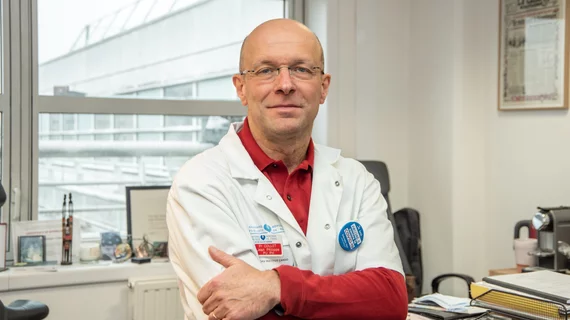Cardiologist remembered by friends and colleagues for his generosity, ‘unwavering kindness’
Jean-Philippe Collet, MD, PhD, a veteran cardiologist who specialized in thrombosis research, died on Dec. 15. He was 59 years old.
Collet served as a professor of cardiology and director of the cath lab at Pitié-Salpêtrière Hospital in Paris in addition to running the Cardiovascular Training Program at Sorbonne University, also in Paris. He was a member of the European Society of Cardiology (ESC), French Society of Cardiology and European Association of Percutaneous Cardiovascular Interventions, among other medical societies, and helped found ACTION, a cardiovascular research organization. In addition, he contributed to more than 480 medical journal articles and another 45 book chapters. His primary specialties were thrombosis, antithrombotic agents and structural heart disease.
The European Society of Cardiology (ESC) shared a loving tribute to Collet, calling him a “pillar” of the organization.
“He was a long-standing member of the ESC community who generously shared his expertise and energy,” according to the society’s statement. “The cardiovascular community has lost an inspiring leader and a man whose warmth and generosity profoundly touched all those who knew him.”
ACTION shared its own tribute to Collet on social media, saying he was known for his “unwavering kindness.”
“Always approachable and modest, he was generous, attentive and loved by all his colleagues,” the group wrote. “We will always remember his kind smile, his availability and his willingness to share his knowledge.”

